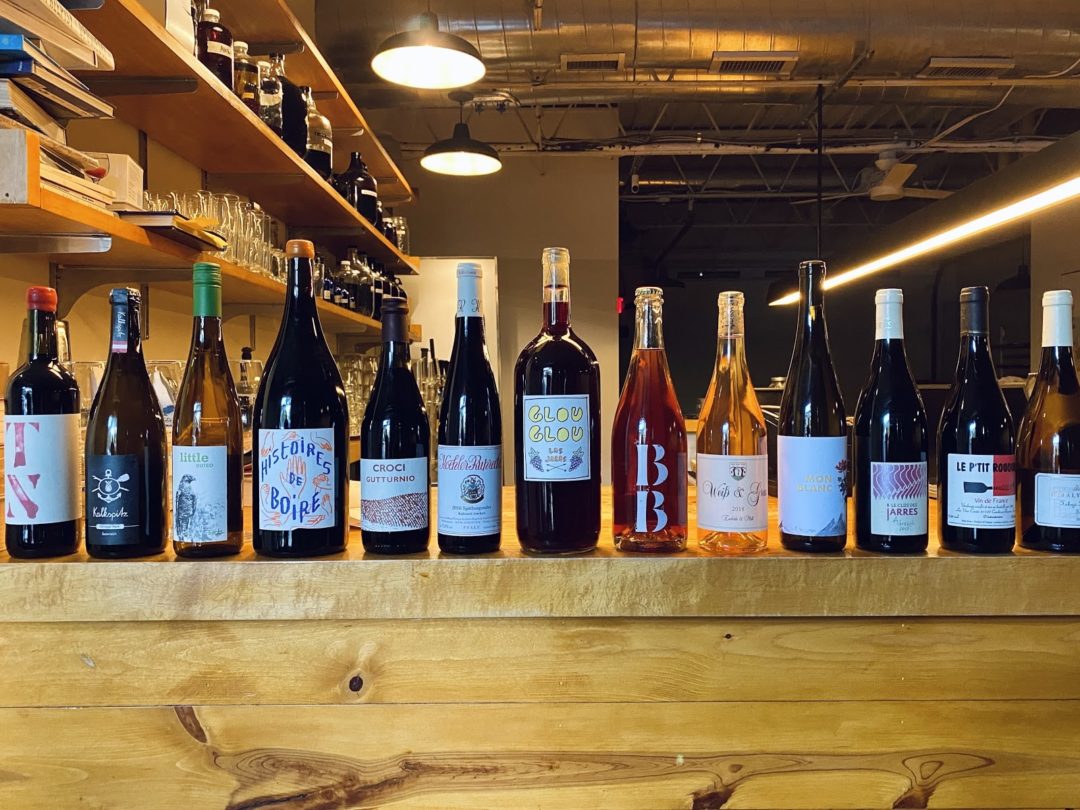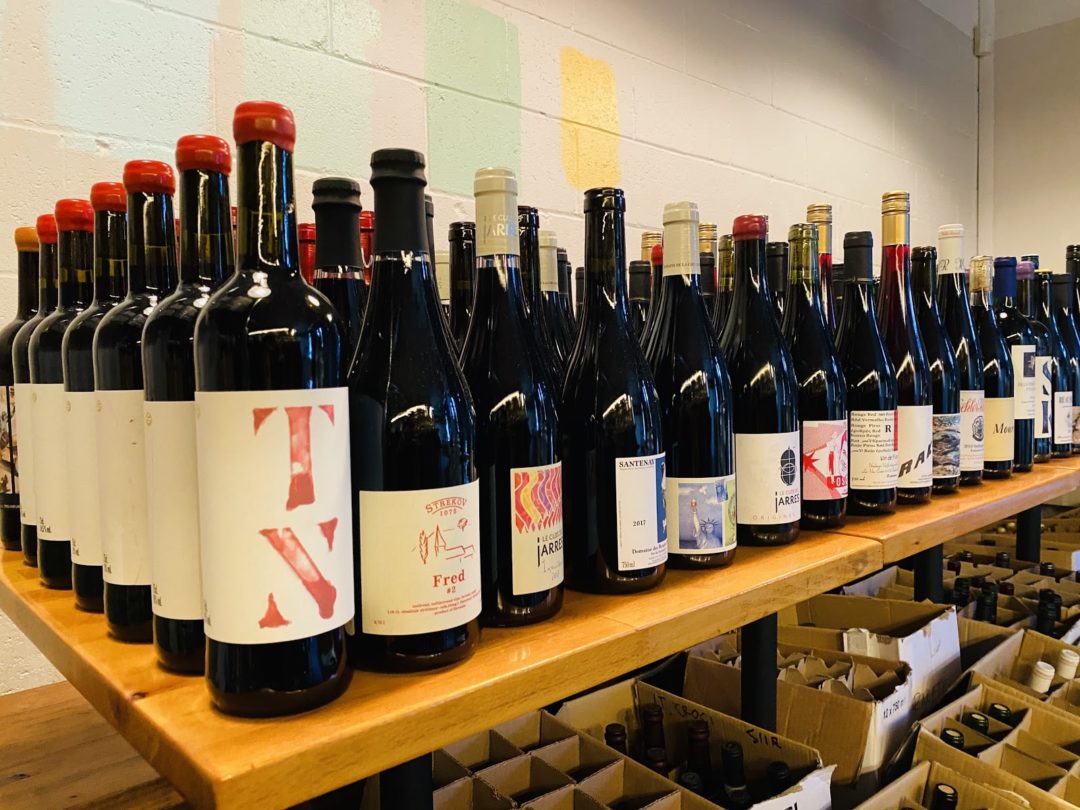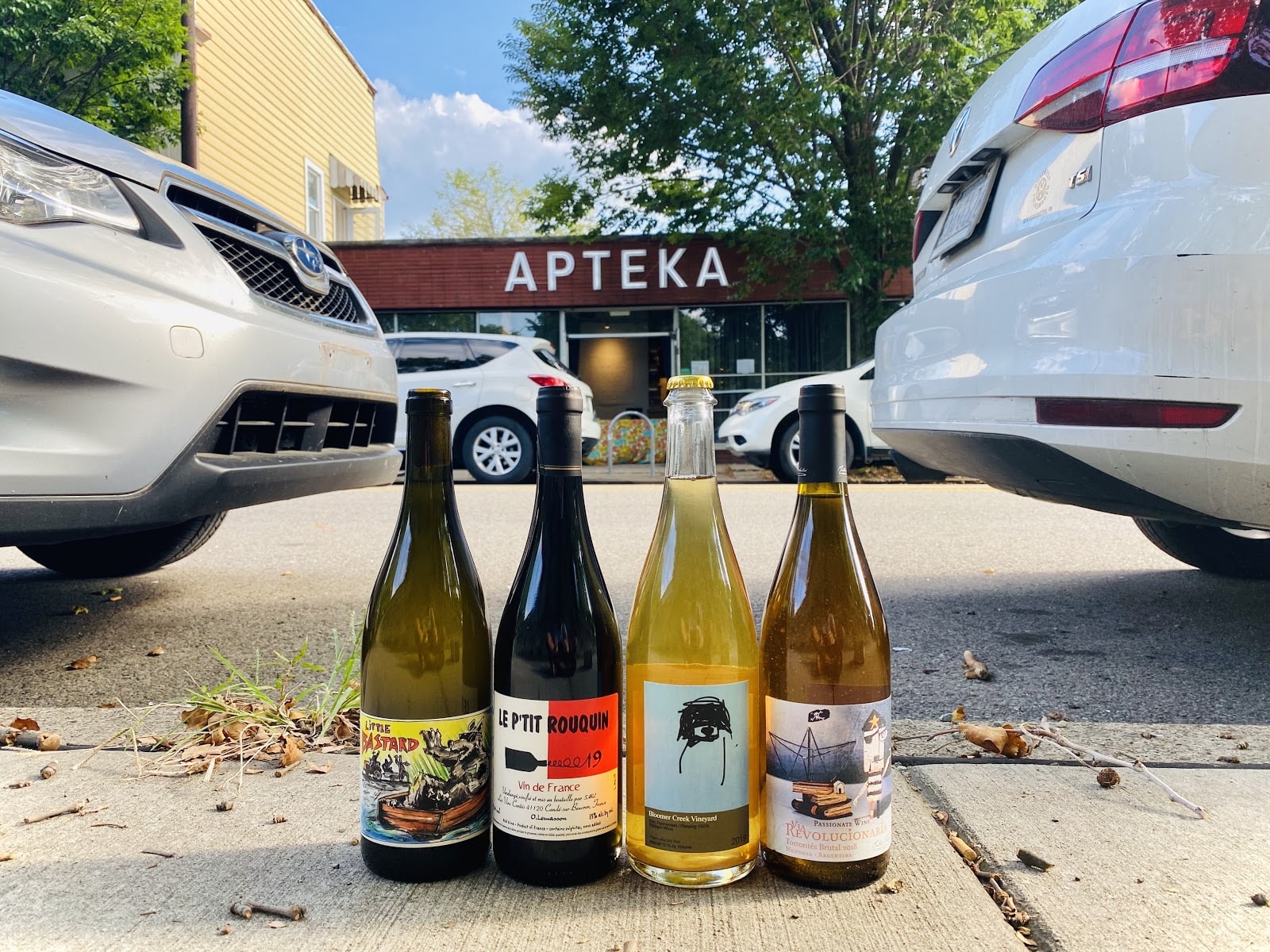When Apteka closed their doors in early April, the 5-year-old restaurant wasn’t surrendering to their biggest challenge yet. Rather, they were strategizing, reflecting and finding a way to fill a gaping hole in Pittsburgh’s food and beverage scene; access to natural wine.
Wine Woes: Navigating Pennsylvania’s Laws
Selling wine in Pennsylvania is a pain in the ass. The state’s restrictive post-prohibition laws never fully caught up to the rest of the country, leaving Pennsylvanians in a sea of state-run liquor stores plagued by unimaginative curation. The cool boutique bottle shop with a record store feel is missing from this patch of the country—that is until Tomasz Skowronski and Kate Lasky jumped back into the scene.
“A little dream of ours was to open up a wine bottle shop, but the finances are really challenging in Pennsylvania,” says Skowronski. “It’s also a lot of work to organize everything. But what we’ve been afforded for the first time, is that we have enough time to build inventory, learn more, and do this thing right.”
What is Natural Wine?
Natural wine is made in small batches from hand-harvested organic or biodynamic grapes with minimal intervention in the cellar. This means no added sulfites, yeasts, or processing aids—just grapes and natural yeast. So while interest in unique unfiltered wines with funky, hand-drawn labels has drastically spiked in the last decade, it’s really nothing new. This is the way our ancestors drank.
The results of this winemaking process are living, often unpredictable wines. Conventional and corporate wineries moved far away from this process in an effort to create consistent, palatable products. But what is lost in conventional winemaking is gained through natural wine practices—uniquely drinkable wines, less likely to result in morning headaches, and tendencies to pair very well with food.
“Natural wine played into what we like to eat and what we like to drink,” Skowronski says when discussing the origins of the restaurant’s wine menu. “I just like natural wine more, and so does Kate [Lasky]. We just play to our sensibilities.”

Walk up to the entrance and you’ll likely find front of house manager, Kolin Smith, slinging bottles, offering samples, and teaching the curious about the world of natural wine. I’m handed a chilled glass, sweating with condensation on a hot, goopy, 92°F Pittsburgh evening. I temporarily peel back my mask, and without hesitation take a sip of a crisp Austrian riesling—a refreshing contrast of monumental proportions.
“It’s been really cool to see the way in which people have responded to us doing this,” says Smith. “We’re getting a lot of people who haven’t been able to find the good natural wines they like locally, but also a lot of people who know nothing about wine and want to learn.”
Getting Pittsburgh Up to Speed on Natural Wine
Since the restaurant’s 2016 opening, there has been a significant emphasis on education. Much like their vegan Central & Eastern European cuisine, these wines aren’t always what might be expected.
“When people would buy certain wines by the glass, we would demand that they would taste first,” explains Skowronski. “Because the pinot that someone is coming in and expecting to drink is not the pinot that they’re gonna get. It’s gonna be much more acidic, it’s gonna be volatile, it might have weird reductive qualities to it that could be surprising.”
The restaurant’s educational push in tandem with the demand for low intervention wines has successfully created a jump in knowledge surrounding natural wine.
“So many more people know about it now,” says Smith. “I think some of it has to do with personalities like Action Bronson and Eric Warheim getting involved, and also platforms like Bon Appétit giving it a spotlight. It’s really exciting to see.”

It’s not all sunshine and co-fermented rainbows, however. Early in the year, the restaurant obtained a Wine Expanded Permit (WEP) allowing them to sell wine as a retailer. In addition to the cost of the permit, they still have to make their purchases through the Pennsylvania Liquor Control Board (PLCB). So while retailers in other states have the advantage to purchase wines directly from distributors, the Apteka’s of the world have one extra gatekeeper in the process, meaning extra costs and restrictions.
“What you buy in a New York City wine shop is pretty much what we’re paying,” claims a frustrated, yet accepting Skowronski. “That’s why you have Pennsylvania prices at a higher rate.”
Additionally, while you won’t find any bottles from Apteka’s roster in any state stores, their options are severely limited by their geography.
“You look at wine shops in other parts of the country that are getting wines weeks, even months ahead of us—things we simply just can’t get our hands on, even if we’re willing to buy in much, much bigger volume and pay upfront. The way it’s set up in Pennsylvania is not for wine lovers.”
Visiting the Apteka Natural Wine Shop
While the PLCB and Pennsylvania restaurants may be at odds with one another, including pending lawsuits against the control board, the team at Apteka remains resilient and committed to sharing natural wine with their community.
“We’re definitely not going anywhere,” says Skowronski. “We decided that we weren’t going to do it half-assed. We’re doing natural wine with only the best producers, and providing information that is readily available for people to access.”
Currently the wine shop is open Wednesday through Sunday, with the takeout food menu available on both Fridays and Saturdays. The Apteka website has a robust catalogue built out, allowing customers to learn about and purchase bottles—but don’t hesitate to walk up to the shop and pick Smith’s brain to find the perfect bottles for you.
“It’s been really nice,” says Skowronski. “We’ve had a lot of people express that they’ve been praying for this for a long time. I imagine it’s only gonna get better, and we’re only building out more wines.”







